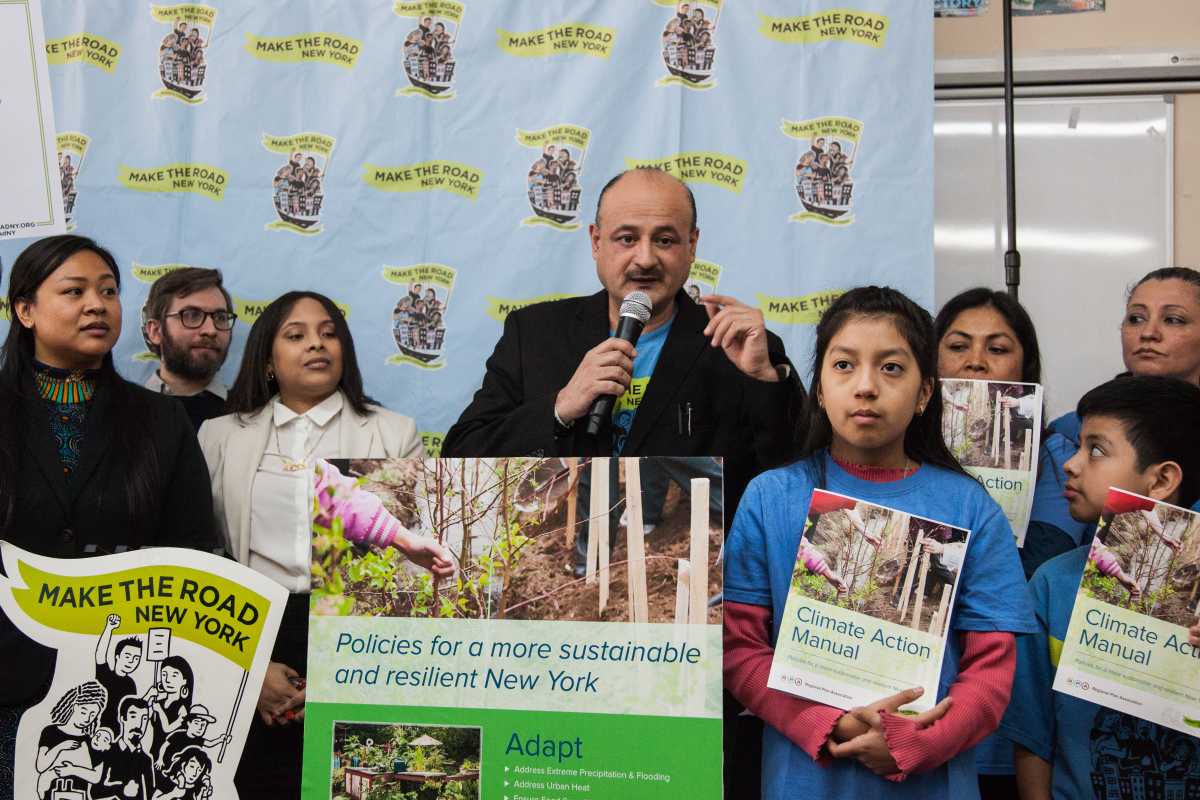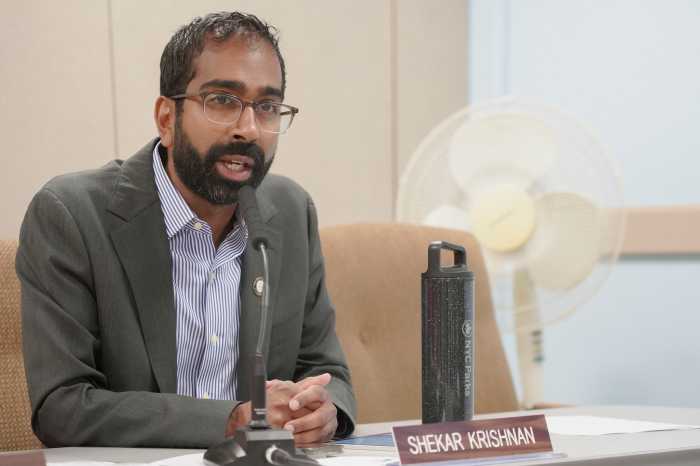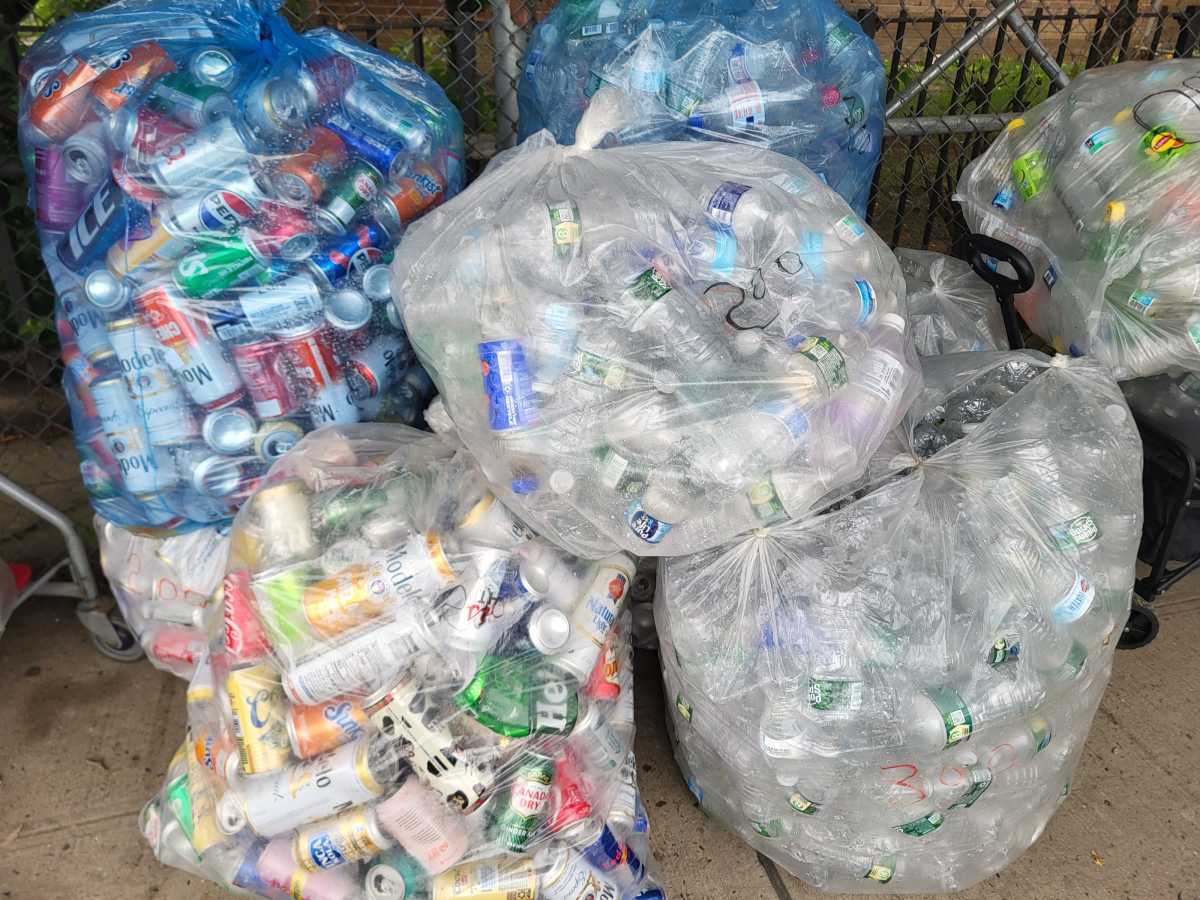Immigrant-led progressive advocacy group Make the Road New York (MRNY) and research and planning civic organization Regional Plan Association (RPA) released a compilation of climate-related policy recommendations on Wednesday, Feb. 19.
The premise of two organizations’ collaborative report is to treat the effects of climate change as inextricably linked with other social issues facing the working class, immigrant communities. It covers infrastructure improvements and highlights new legislative and programming ideas.
“Really the climate action manual is to amplify the work that Make the Road is already doing. [MRNY] has many frontline issues: like fair and just housing, like the environment, like immigration. All these intersect with climate change,” said Vanessa Barrios, Senior Associate at RPA.
Along with the policy report, which more aimed at bolstering the work of MRNY organizers as they head to City Hall or Albany to speak with legislators, the two groups released a “Healthy Homes Guide” flyer that shows local residents some simple measures that they can take in their own homes to make them more climate resilient.
The recommendations start with a list of infrastructure adaptations like more rain gardens, bioswales, urban agriculture expansion, and roof cooling methods.
Then it pitches a plan to generate revenue for those changes. New York Renews (NYR) has proposed a polluter’s fee bill at the state level, which would involve a fine for excess greenhouse gas emissions. According to their group’s calculations, the fee could raise as much as $7 billion every year for the first ten years.
“It’s going to take billions of dollars. So what we need is a plan to generate that money and allocate it so that it’s equitable,” said Leslie Kagan of NYR.
New York Renews’ polluter fee policy proposes to funnel 33 percent of its toll into a fund devoted to low-income communities and communities of color.
The manual also takes aim at the language of the landmark Climate Leadership and Community Protection Act, which set ambitious carbon reduction goals across the state last year.
While agreeing with the intent of the legislation, the manual points out the ambiguities in a section of the law stating that “disadvantaged communities shall receive no less than 35 percent of the overall benefits of spending on clean energy and energy efficiency programs, projects or investments.”
The manual goes on to demand that the legislature clarify how the term “disadvantaged communities” will be defined, and the extent to which it will work with organizations and leaders from these communities.
“A key recommendation is to offer immigrant New Yorkers the skill. Green jobs have gone to men and white people rather than women and people of color,” said Felipe Idrovo, a member for MRNY.
Finally the report encourages several measure meant to bolster tenant protections and education reforms for New York City students. For MRNY, this means continuing to support legislation like the support of a good cause eviction at the state level and continued support for community land trusts from the city. Its education proposals would require New York City schools to teach climate change and offer additional science programming.



































